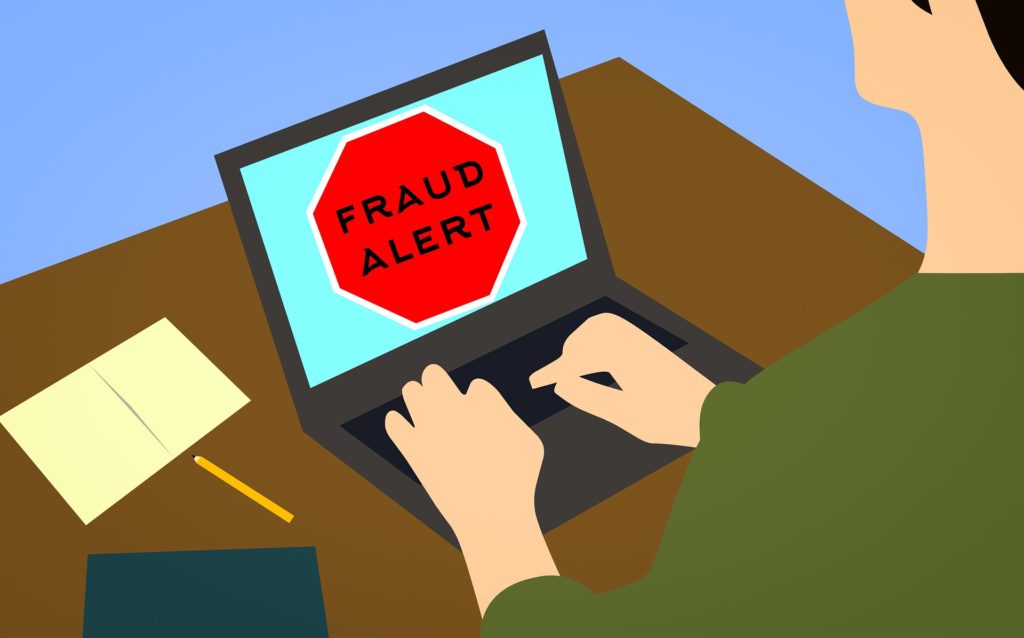U.S. companies’ relationships with their Chinese business partners have been strained in the past year, and that has only accelerated the past few months, as we have noted in prior blog posts (see The US-China Trade War: What’s Next?, When Will the US-China Trade War End? It’s the New Normal, and The US-China Trade War: Next Week’s Shanghai Meeting is a Tiny Glimmer of Hope). We expect trade disputes and general business disputes between Chinese and non-Chinese companies to increase significantly over the next many months (and years), and some of those disputes will center on China’s opaque banking system. Bank and wire fraud is endemic to the worldwide electronic banking systems because our increasingly online interactions and troves of data lend themselves to a culture of fraud. This fraud occurs in the U.S., in China, and in most, if not all, countries throughout the world.
Even more than usual we are being asked by foreign companies (mostly American and European) to review Chinese bank records to determine the likelihood that someone or some entity had committed fraud. Companies do not usually ask us to do this sort of review unless they have good reason to believe a fraud has been committed, and nearly every time we do such a review, we find good evidence of fraud. Based on the reviews we have done, we want to provide you with some pointers that may be helpful when reviewing your own Chinese bank records, wire or other transfer receipts, or when you are expecting money to hit your Chinese or U.S. bank account with a payment from China that “definitely should have been here by now.”
First, it is extremely difficult to get copies of Chinese bank records. For bank accounts other than those you or your company own, it is almost impossible to get bank records without initiating a lawsuit in China. If you have been able to get your hands on some records, you are doing pretty well vis-à-vis other foreign companies.
Second, the bank’s location will matter in its ability or willingness to provide records to you. Hong Kong is, as of this blog post, still a semiautonomous city that benefits from a “one China, two systems” (一国两制) economic policy, and barring extraordinary actions by China, it should remain so through for at least the next year. Many mainland banks have branches in Hong Kong and other major cities like Singapore, London, and New York, so you may be able to acquire bank records from those non-mainland locations.
Third, identify patterns and deviations from those patterns. If you are tracking regular payments, look at the frequency, the payor, the payee, the account numbers, the amounts, and any other category of information that appears with regularity. Do not rely only on the account number or the name of the account holder. Every piece of data should sync up perfectly. As I discussed in my prior blog post (Cryptocurrency in China: A Primer), Chinese individuals and companies have devised many ways to get currency out of China. Those same skills can be used to move money within China or to create the illusion that money has been moved one way when in fact it was cashed out of the account. Ask the banks involved for a copy of their standard transfer receipts so that you can compare the records you have to those standard documents. Banks involved in international wire transfers use standard forms, as well, and if the documents you received do not resemble those standard forms, you will want to dig deeper.
Fourth, trust but verify (because everyone likes easy money). In reviewing your transaction records, assume that at least one actor who handled the chain of money from A to Z had something to gain and acted to their benefit. Research and verify the names and addresses of the companies — in Chinese to ensure they match with the official Chinese company record. Look at the names of individuals and ensure they are consistent and the payments were made to or by the individuals who should be receiving or transferring the funds. See should employees really be getting paid that much? The top 10 Chinese surnames are Wang, Li, Zhang, Liu, Chen, Yang, Huang, Zhao, Wu, and Zhou, and that means there are many individuals with the same, similar-looking, and similar-sounding names. Look at the full Chinese name of the individual (in Chinese) and not whatever is on the English language document. If you see anything amiss, do not assume it is an honest mistake. Flag it in your review and come back to it later.
Fifth, official-looking documents and stamps (seals/chops) can be falsified. Documents that include official-looking (and legally required) stamps and appear to indicate official acceptance of a funds transfer request may show that the request was honored by the bank. Or they may merely show that the “unique” stamp used by the Chinese bank or company was stolen or copied. Chinese companies continue to use these low-tech official stamps, but “official” is not synonymous with “secure.”
Sixth, a request for payment is not proof that a wire transfer or other transfer was made. This point should really be first and last on our list. This is standard fraud: produce a funds transfer request or a deposit or withdrawal slip but do not provide any proof of a successful wire transfer or other deposit or withdrawal. In China as in pretty much every country in the world, it is law and standard banking practice to provide proof of receipt of funds transfer and not merely the proof of request for funds transfer. Each request should be matched exactly by a transfer receipt.
Seventh, look for transactions in cash. Even though China uses cash more than the U.S., deposits or withdrawals of large sums of cash should raise red flags. If the entities and individuals involved generally use cash, then that is less concerning than large cash transactions suddenly appearing where fully electronic payments previously dominated the ledger.
Eighth, look for payments in foreign currencies (non-yuan/RMB) to or from Chinese companies or Chinese nationals. If the payment was supposed to go to a Chinese national or come from a Chinese national, it is highly unusual that the payment would be in a foreign currency. If the company is a Chinese company doing business internationally, it will naturally have one or more foreign currency accounts. But it is very unusual that a Chinese company would use foreign currency to pay its domestic obligations to other Chinese companies or to its Chinese employees.
Ninth, Chinese companies have bank account numbers. Let me explain this obvious point. In reviewing Chinese financial records recently, we often see bank transfer slips that do not include the company’s account number at all – only the company’s social credit number, which can be found in a Chinese company public records search. All other types of records included the bank accounts for the supposed recipients. This gets back to point #3 above about identifying patterns, recognizing what “normal” looks like, and then flagging those transactions that deviate from the standard.
Tenth, look at the whole picture. Any one of the above factors may only cause you to raise an eyebrow. Many of the above factors indicate a high likelihood of fraud, especially if you are the one waiting for funds that were supposedly sent many days or weeks previously but have mysteriously gone missing. If you can get your hands on some records, you should be able to determine whether the transaction records reveal fraud.
Expect that financial fraud will increase in frequency and that reviewing a bundle of transaction records will be integral to cross-border disputes with Chinese companies as the U.S., China, and the global economy continue to bend under the weight of global trade barriers.

























